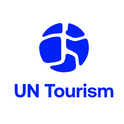UNWTO Highlights Potential Of Domestic Tourism To Help Drive Economic Recovery In Destinations Worldwide
As restrictions on travel begin to ease globally, destinations around the world are focusing on growing domestic tourism, with many offering incentives to encourage people to explore their own countries. According to the World Tourism Organization (UNWTO), with domestic tourism set to return faster than international travel, this represents an opportunity for both developed and developing countries to recover from the social and economic impacts of the COVID-19 pandemic.
Recognizing the importance of domestic tourism, the United Nations specialized agency has released the third of its Tourism and COVID-19 Briefing Notes, -Understanding Domestic Tourism and Seizing its Opportunities.- UNWTO data shows that in 2018, around 9 billion domestic tourism trips were made worldwide - six times the number of international tourist arrivals (1.4 billion in 2018). The publication identifies ways in which destinations around the world are taking proactive steps to grow domestic tourism, from offering bonus holidays for workers to providing vouchers and other incentives to people travelling in their own countries.
Domestic tourism to drive recovery
UNWTO Secretary-General Zurab Pololikashvili said: "UNWTO expects domestic tourism to return faster and stronger than international travel. Given the size of domestic tourism, this will help many destinations recover from the economic impacts of the pandemic, while at the same time safeguarding jobs, protecting livelihoods and allowing the social benefits tourism offers to also return."
The briefing note also shows that, in most destinations, domestic tourism generates higher revenues than international tourism. In OECD nations, domestic tourism accounts for 75% of total tourism expenditure, while in the European Union, domestic tourism expenditure is 1.8 times higher than inbound tourism expenditure. Globally, the largest domestic tourism markets in terms of expenditure are the United States with nearly US$ 1 trillion, Germany with US$ 249 billion, Japan US$ 201 billion, the United Kingdom with US$ 154 billion and Mexico with US$ 139 billion.
Initiatives to boost domestic tourism
Given the value of domestic tourism and current trends, increasing numbers of countries are taking steps to grow their markets, UNWTO reports. This new Briefing Note provides case studies of initiatives designed to stimulate domestic demand. These include initiatives focused on marketing and promotion as well as financial incentives. Examples of countries taking targeted steps to boost domestic tourist numbers include:
- In Italy, the Bonus Vacanze initiative offers families with incomes of up to EUR 40,000 contributions of up to EUR 500 to spend in domestic tourism accommodation.
- Malaysia allocated US$113 million worth of travel discount vouchers as well as personal tax relief of up to US$227 for expenditure related to domestic tourism.
- Costa Rica moved all holidays of 2020 and 2021 to Mondays for Costa Ricans to enjoy long weekends to travel domestically and to extend their stays.
- France launched the campaign #CetÉtéJeVisiteLaFrance ('This Summer, I visit France') highlighting the diversity of destinations across the country.
- Argentina announced the creation of an Observatory for Domestic Tourism to provide a better profile of Argentine tourists.
- Thailand will subsidize 5 million nights of hotel accommodation at 40% of normal room rates for up to five nights.
About UN Tourism
The World Tourism Organization (UN Tourism), a United Nations specialised agency, is the leading international organisation with the decisive and central role in promoting the development of responsible, sustainable and universally accessible tourism. It serves as a global forum for tourism policy issues and a practical source of tourism know-how. Its membership includes 166 countries, 6 territories, 2 permanent observers and over 500 Affiliate Members from the private sector.
Media enquires: [email protected]
UN Tourism Communications Department
+34 91 567 8100
UN Tourism
